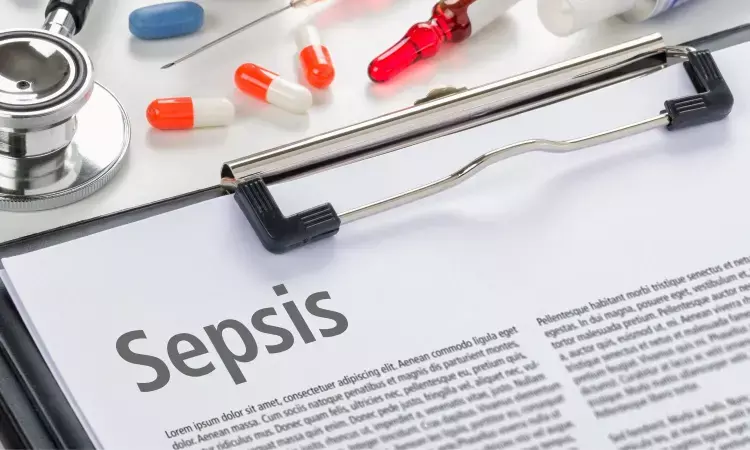- Home
- Medical news & Guidelines
- Anesthesiology
- Cardiology and CTVS
- Critical Care
- Dentistry
- Dermatology
- Diabetes and Endocrinology
- ENT
- Gastroenterology
- Medicine
- Nephrology
- Neurology
- Obstretics-Gynaecology
- Oncology
- Ophthalmology
- Orthopaedics
- Pediatrics-Neonatology
- Psychiatry
- Pulmonology
- Radiology
- Surgery
- Urology
- Laboratory Medicine
- Diet
- Nursing
- Paramedical
- Physiotherapy
- Health news
- Fact Check
- Bone Health Fact Check
- Brain Health Fact Check
- Cancer Related Fact Check
- Child Care Fact Check
- Dental and oral health fact check
- Diabetes and metabolic health fact check
- Diet and Nutrition Fact Check
- Eye and ENT Care Fact Check
- Fitness fact check
- Gut health fact check
- Heart health fact check
- Kidney health fact check
- Medical education fact check
- Men's health fact check
- Respiratory fact check
- Skin and hair care fact check
- Vaccine and Immunization fact check
- Women's health fact check
- AYUSH
- State News
- Andaman and Nicobar Islands
- Andhra Pradesh
- Arunachal Pradesh
- Assam
- Bihar
- Chandigarh
- Chattisgarh
- Dadra and Nagar Haveli
- Daman and Diu
- Delhi
- Goa
- Gujarat
- Haryana
- Himachal Pradesh
- Jammu & Kashmir
- Jharkhand
- Karnataka
- Kerala
- Ladakh
- Lakshadweep
- Madhya Pradesh
- Maharashtra
- Manipur
- Meghalaya
- Mizoram
- Nagaland
- Odisha
- Puducherry
- Punjab
- Rajasthan
- Sikkim
- Tamil Nadu
- Telangana
- Tripura
- Uttar Pradesh
- Uttrakhand
- West Bengal
- Medical Education
- Industry
Invasive Group B Streptococcus meningitis linked with heightened risk of epilepsy among children

A study published in JAMA Network Open on Infectious Diseases is the first research regarding the long-term risk of epilepsy as an individual outcome after invasive Group B Streptococcus or iGBS sepsis or meningitis.
In this study, the researchers found that there is a higher risk of epilepsy in children with iGBS meningitis in later childhood than those who are not exposed to iGBS. According to them, the cumulative incidence of epilepsy was higher in the first five years following the iGBS diagnosis.
There is a lack of data regarding epilepsy risk after neonatal invasive Group B Streptococcus (iGBS) disease, especially iGBS sepsis.
Considering this, researchers examined the association between neonatal iGBS (sepsis or meningitis) and long-term risk of epilepsy, stratified by sex, prematurity, and maternal socioeconomic position or SEP.
The details of the study design and results are summarised below:
- Data was collected from Danish national registers.
- The infants aged 0 to 89 days were included in the study.
- The exposure was hospital-diagnosed iGBS (sepsis or meningitis) during the first 89 days after birth.
- One thousand four hundred thirty-two children with gestational age ≥37 weeks had iGBS disease.
- 1264 were with sepsis and 168 with meningitis.
- There were 14 211 children (gestational age ≥37 weeks in the comparison cohort.
- The overall CR of epilepsy was 3.6% in children with iGBS disease and 2.3% in the comparison cohort.
- The overall CR of epilepsy for iGBS meningitis and iGBS sepsis was 15.1% and 2.2%, respectively.
- For epilepsy in children with iGBS disease, the adjusted hazard ratio for epilepsy was 2.04.
- In later childhood, there was increased epilepsy risk for boys born premature or born to a mother from a low SEP group.
- The effect modifiers are Premature birth, sex, and low maternal SEP.
Concluding further, there is an association between iGBS disease and epilepsy incidence. This is modified by Premature birth, sex, and low maternal SEP-modified association.
We found that children born in Denmark (1997-2017) diagnosed with iGBS meningitis are at higher risk of epilepsy, they wrote.
We recommend adding epilepsy to the list of neurological outcomes following iGBS disease in early infancy, especially meningitis, they mentioned.
The study's strengths are high-quality data, long-term follow-up, and the assessment of attributable risk factors.
Our study also has limitations, they said. The significant limitations of the study are incorrectness of diagnostic code, misclassification, bias, and unmeasured confounding factors. They mentioned that we could not know whether iGBS was a consequence of or a risk factor for premature birth.
Their final words in this study are, “Our study has addressed an important epidemiological question for iGBS sepsis.” Our findings have implications for estimating the global burden of iGBS and should be considered regarding the cost-effectiveness of interventions, including intrapartum antibiotic prophylaxis and maternal vaccination.
Further reading:
Long-term Risk of Epilepsy Following Invasive Group B Streptococcus Disease in Neonates in Denmark. https://jamanetwork.com/journals/jamanetworkopen/fullarticle/2804096
BDS, MDS in Periodontics and Implantology
Dr. Aditi Yadav is a BDS, MDS in Periodontics and Implantology. She has a clinical experience of 5 years as a laser dental surgeon. She also has a Diploma in clinical research and pharmacovigilance and is a Certified data scientist. She is currently working as a content developer in e-health services. Dr. Yadav has a keen interest in Medical Journalism and is actively involved in Medical Research writing.
Dr Kamal Kant Kohli-MBBS, DTCD- a chest specialist with more than 30 years of practice and a flair for writing clinical articles, Dr Kamal Kant Kohli joined Medical Dialogues as a Chief Editor of Medical News. Besides writing articles, as an editor, he proofreads and verifies all the medical content published on Medical Dialogues including those coming from journals, studies,medical conferences,guidelines etc. Email: drkohli@medicaldialogues.in. Contact no. 011-43720751


